
The contaminated blood scandal has been called the worst treatment disaster in NHS history.
Tens of thousands of people in the UK were infected with HIV and/or hepatitis through contaminated blood and blood products in the 1970s and early 1990s.
Many had bleeding disorders, particularly people with haemophilia who had a shortage of clotting agent Factor VIII, while others were infected through receiving blood transfusions during childbirth, surgery or other medical events.
Here is a timeline of key dates in the scandal, leading up to the Infected Blood Inquiry which was ordered by then-prime minister Theresa May in 2017.
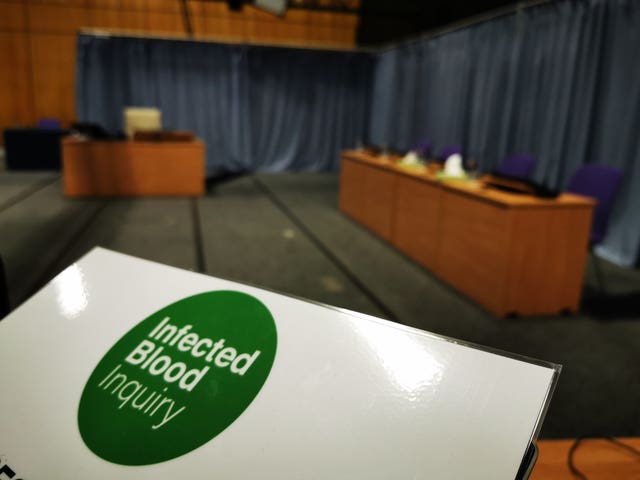
– 1953
The World Health Organisation (WHO) warns that dried plasma should be prepared from pools of between 10 to 20 donors to reduce the risk of contamination.
– 1975
Lord David Owen, while serving as a Labour health minister, pledges that the UK will become self-sufficient in blood products, with some £500,000 to be spent on the policy.
– 1978
The NHS is sourcing supply of factor concentrate, to replace the Factor VIII clotting agent, from overseas, after the UK fails to become self-sufficient.
– 1983
The WHO and the Lancet, a medical journal, say people with haemophilia should be told about the risks of using blood products.
– 1984
Heat-treated blood products become available, which deactivate viruses in the product.
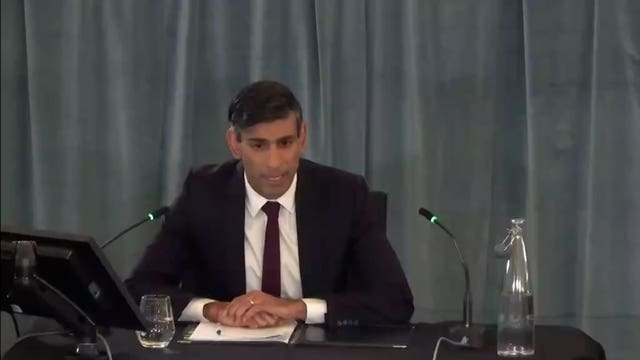
– 1986
Blood donations begin to be tested for HIV.
– 1989
The UK government provides financial support to people infected with HIV via contaminated blood products.
Hepatitis C, which was previously known as non-A/non-B hepatitis, is named.
– 1991
Blood donations begin to be tested for hepatitis C.
– 1995
The Hepatitis C and HIV Compensation Tribunal is set up by the Irish government to compensate people infected with hep C as a result of the receipt of a contaminated blood transfusion or blood products.
– 1997
The Hepatitis C and HIV Compensation Tribunal becomes a statutory body with the enactment of the Hepatitis C Compensation Tribunal Act 1997.
– 2002
The Hepatitis C and HIV Compensation Tribunal is expanded to compensate people infected with HIV as a result of the receipt of a relevant contaminated blood product within the Republic of Ireland.
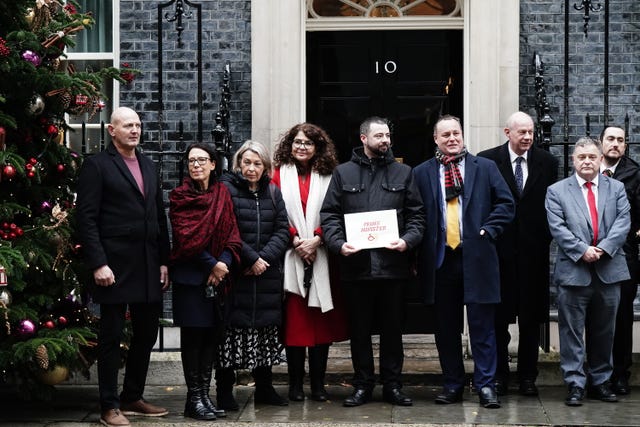
– 2004
The UK government launches a fund to provide people infected with hep C through contaminated blood products with financial support.
– 2016
The Factor 8 campaign group is set up, with the aim of advocating on behalf of those impacted by contaminated Factor VIII and Factor IX concentrate blood products.
– July 13
Lord David Cameron, then-prime minister, announces every victim of the NHS contaminated blood scandal will for the first time receive a regular annual support payment.
– 2017
Infected blood support schemes are set up across the UK, with country-specific programmes in Scotland, Wales, England and Northern Ireland.
– July 11
Then-prime minister Theresa May announces there will be an independent public inquiry into what she called an “appalling tragedy which should simply never have happened”.
– July 2 2018
The Infected Blood Inquiry is formally established after its terms of reference are announced.
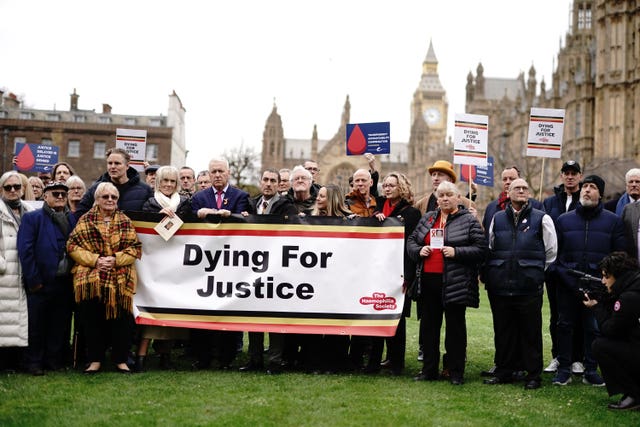
– April 2019
The inquiry begins hearing evidence from those infected and those affected – typically family and friends – by the scandal.
– July 2
The inquiry holds its first hearings in Scotland where two previous inquiries had been branded a whitewash by campaigners.
– March 17 2020
The inquiry announces that hearings will be delayed until at least mid-September because of the Covid-19 pandemic.
– September 22
Hearings resume with evidence from Lord Owen.
– March 25 2021
The Government announces it is resolving disparities in financial support between England, Wales, Northern Ireland and Scotland, as well as addressing broader issues, such as support for bereaved partners.
– May 21
Then-health secretary Matt Hancock appears before the inquiry, telling it the Government will pay compensation to people affected by the contaminated blood scandal if an ongoing inquiry recommends it, citing a “moral responsibility” to address the issues associated with the scandal.
– June 27 2022
Sir John Major gives evidence to the inquiry, saying victims suffered “incredibly bad luck”.

– July 29
Inquiry chairman Sir Brian Langstaff publishes an interim report focused on compensation.
In it, he recommends that interim compensations payments of at least £100,000 should be made to all infected blood victims and bereaved partners across the UK and should be provided “without delay”.
– August 17
The Government announces that survivors of the infected blood scandal and bereaved partners will be given compensation payments of £100,000.
Campaigners argue the majority of those affected have been ignored.
– October 22
The Government confirms survivors and bereaved partners will receive interim compensation payments of £100,000 by the end of the month.
– February 3 2023
The inquiry hears final oral submissions.
Sam Stein KC, representing 23 people affected by infected blood or blood products, including relatives who supported a partner through terminal illness, tells the inquiry that they had “truly lived through the worst of times.”
– April 5
A second interim report is published that recommends the interim compensation scheme should be widened so more people – including orphaned children and parents who lost children – could be compensated.
Prime Minister Rishi Sunak says the Government will wait for the full report into the infected blood scandal before considering whether to extend the compensation scheme for victims.
– July 4
Mr Sunak is called to give evidence to the Infected Blood Inquiry amid complaints the Government is dragging its heels over compensation payments.
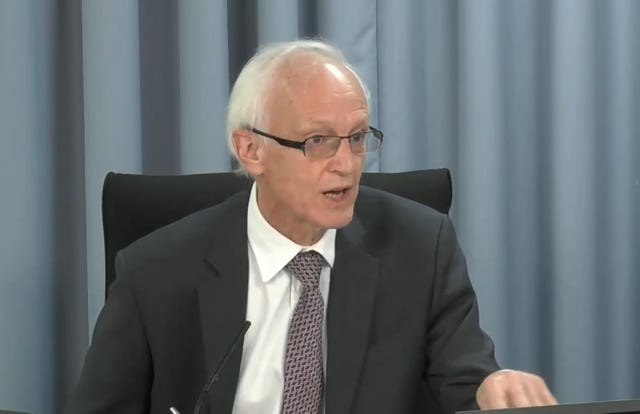
– July 24
Relatives of victims of the NHS infected blood scandal deliver a letter to Downing Street saying “action is needed now” to set up a body to give them full compensation.
– July 26
Mr Sunak appears before the inquiry.
He is heckled as he vowed to pay compensation to victims of the “appalling” scandal “as swiftly as possible” following their decades of suffering.
His promise that the Government’s work “continues at pace” is laughed at by attendees.
– July 28
Chancellor Jeremy Hunt is questioned over the long delays to paying compensation to the victims of the contaminated blood scandal as he appears before the inquiry.
He says “no decisions” have been made over compensation for the victims.
– December 4
A Labour-led amendment requiring ministers to establish a body to administer the full compensation scheme within three months of the Victims and Prisoners Bill becoming law is approved.
It marks Mr Sunak’s first Commons defeat after Tory rebels backed speeding up compensation efforts.
– February 28 2024
Campaigners stage a demonstration on College Green in Westminster calling for urgent action on compensation payments.
– May 1
Government officials confirm that interim payments will also be paid to the “estates of the deceased infected people who were registered with existing or former support schemes”.
– May 20
The inquiry publishes its final report.


Comments: Our rules
We want our comments to be a lively and valuable part of our community - a place where readers can debate and engage with the most important local issues. The ability to comment on our stories is a privilege, not a right, however, and that privilege may be withdrawn if it is abused or misused.
Please report any comments that break our rules.
Read the rules here